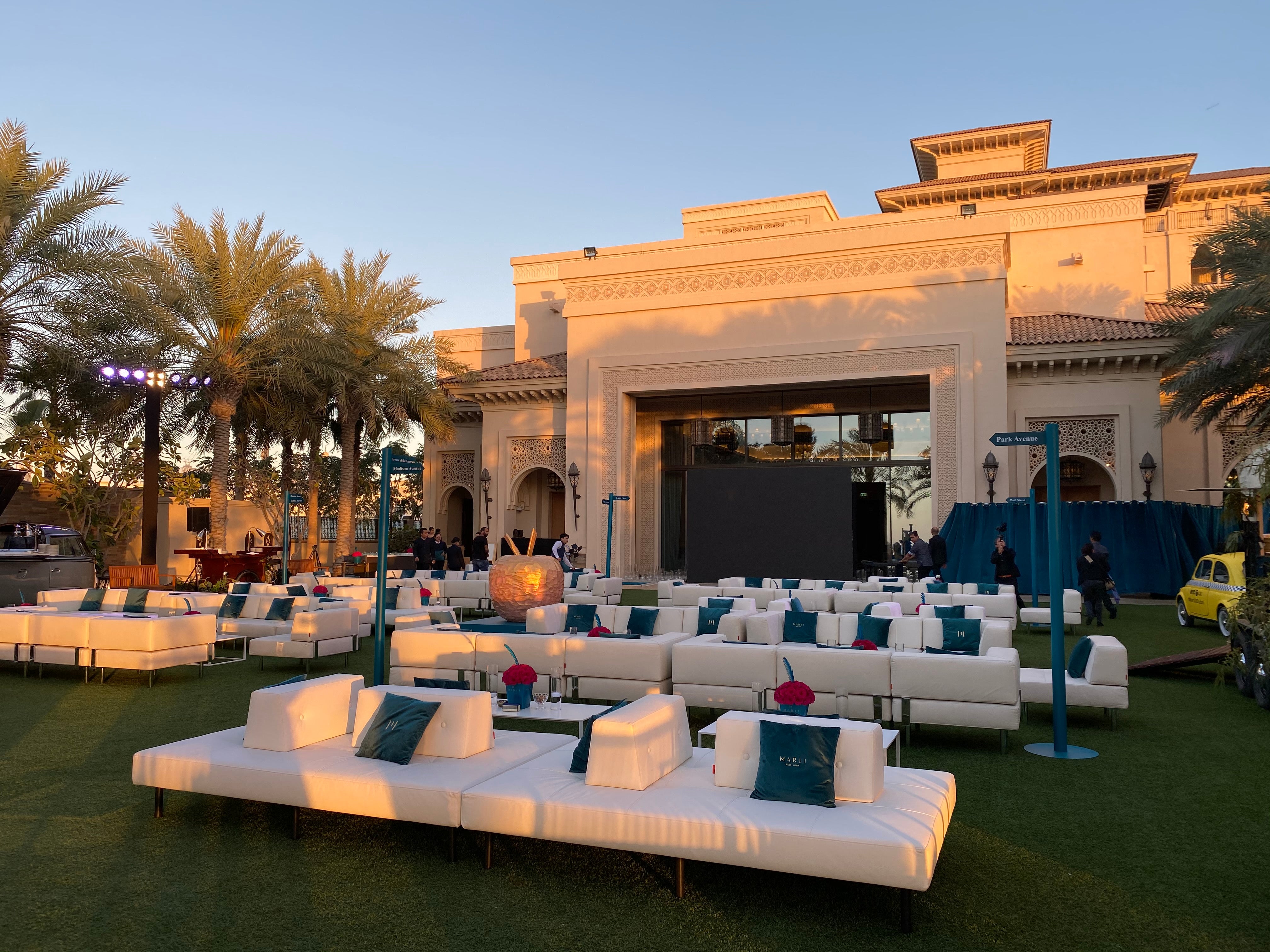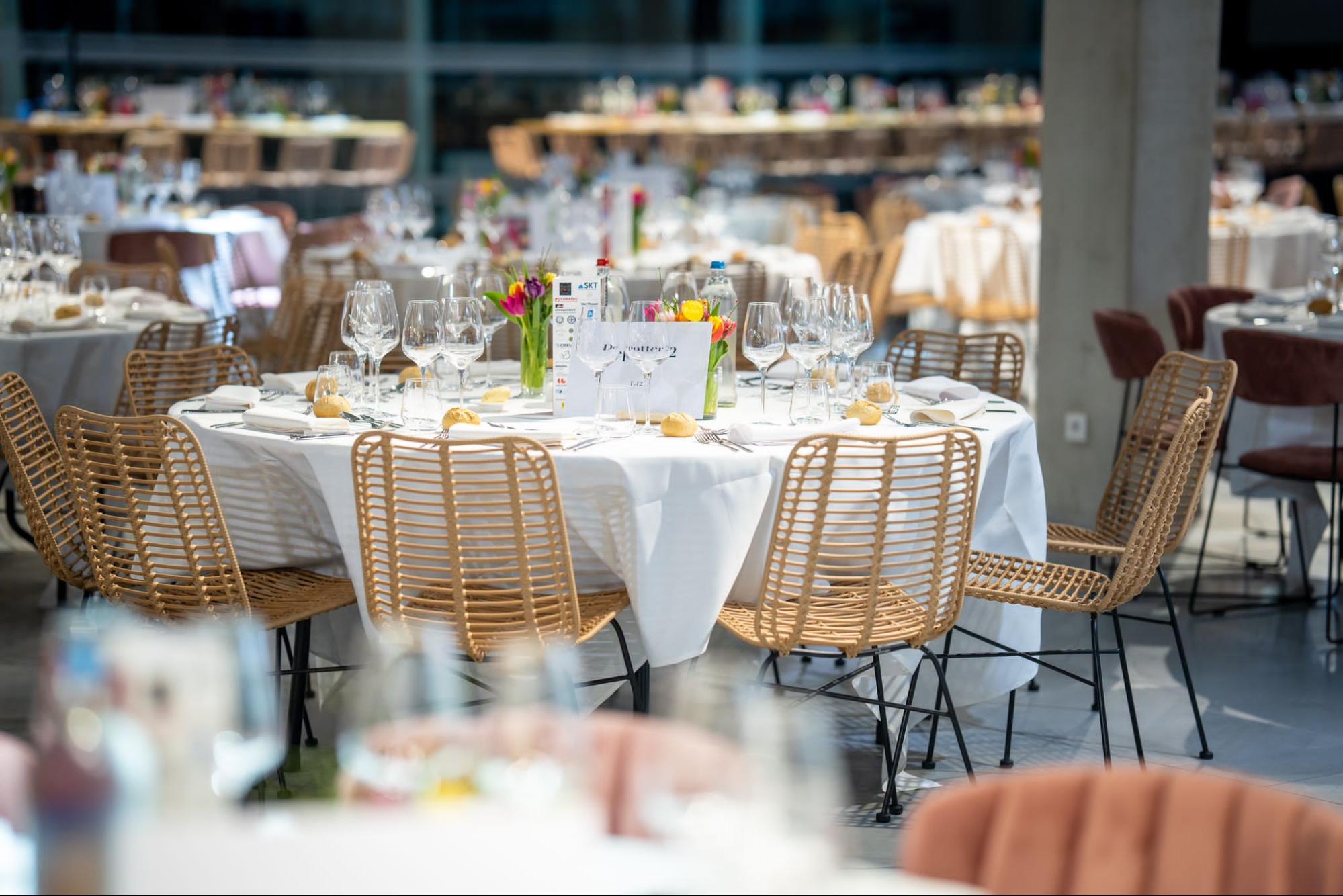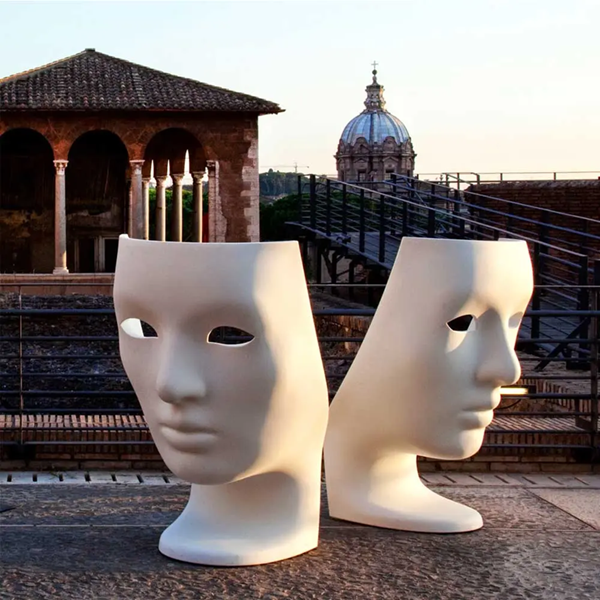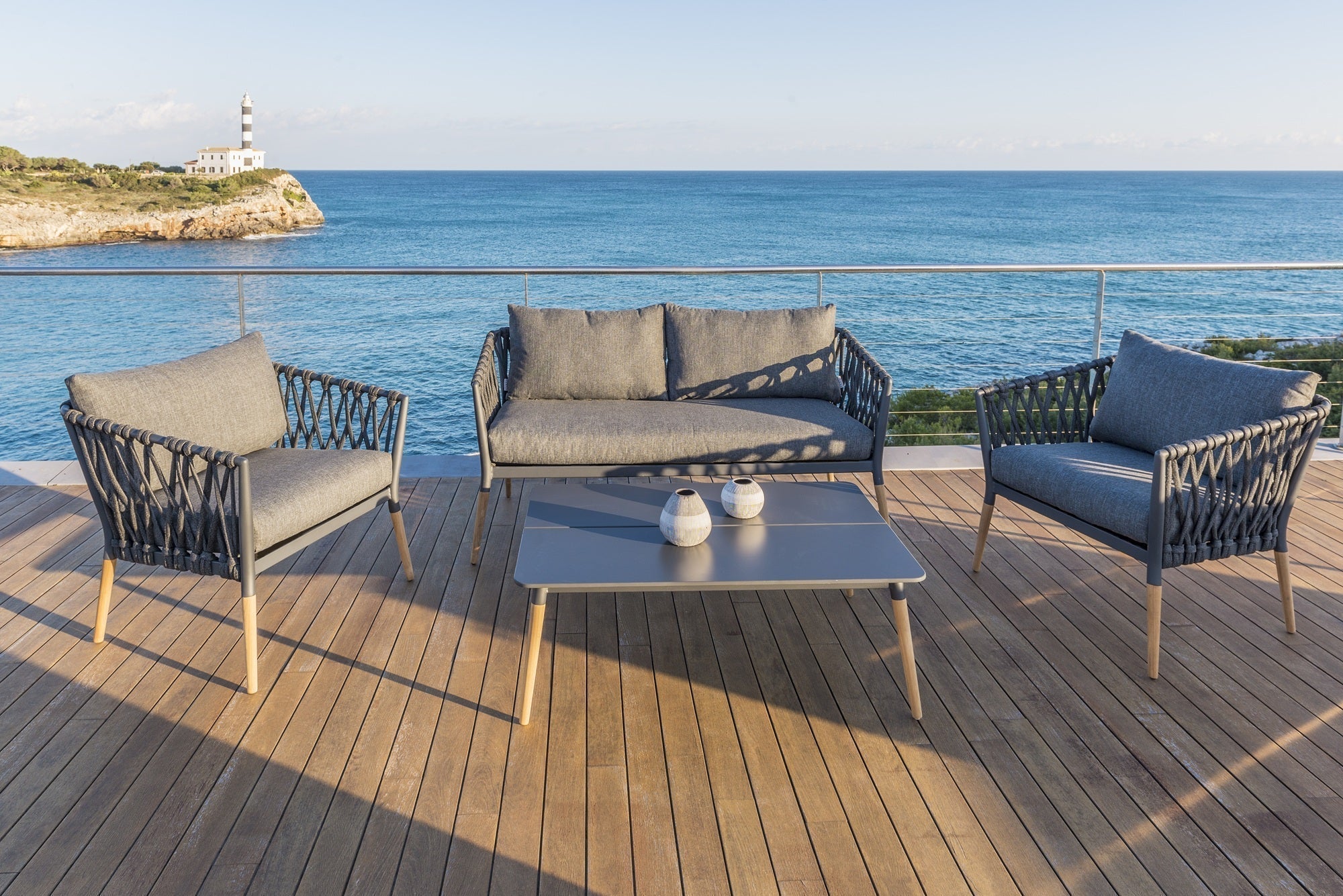Planning an event can be overwhelming and daunting for anyone, whether or not you’re a professional and regardless of experience. Since the success of events can come down to the most minute details, event planners constantly need to keep track of everything from planning to execution.
With so much to consider, we’ve broken down the event planning process into ten actionable steps. We fully understand that every event is different, with its own set of goals and challenges. Let our pro tips guide you in making tailored event planning checklists.
At Desert River Event Rentals, we enable you to create a unique setting that will wow your guests and leave lasting impressions. We’re a one-stop shop for event furniture rentals in Dubai. Let our multilingual team help you tick event styling off your to-do list.
10-Steps to Customising an Event Planning Checklist
Here is what every event planning checklist must have. We’re only providing the basics, so we encourage you to be as specific as you can to minimise any possible event setbacks.
1. Set SMART Event Goals and Objectives
Setting SMART–specific, measurable, achievable, realistic, and timely goals and breaking them down into objectives is crucial to event planning and success. Think about the purpose or type of your event and the estimated attendees, and weigh them alongside personal and guest satisfaction. Is it a themed or casual party, formal gala, or corporate event? Are you simply celebrating a milestone, hosting a fundraiser, or intending to profit from this event? In any scenario, consider the needs, preferences, and expectations of everyone in your event.
Settling an event date can be tricky because you must take note of the availability of the venue, guests, and yourself. Also, be sure it isn’t in conflict with other major events or holidays in the area. Our pro tip is to have your ideal event date in mind but always have a few backup dates ready. Once you’ve arrived at the best date for your event, assign a deadline for every task and objective on your event planning checklist.
2. Draft a Master Plan of Event Requirements
Your event planning checklist can serve as your master plan. You can use an event or project management software or go old-school and design your own sheet. We always recommend having a digital copy, so you worry less about ruining or losing a physical copy. Whatever you do, the idea is to have a list of all event details, ideas, and everything you want for the venue, entertainment, vendors or suppliers, and the kind of furniture and lighting. This is one of the fun parts of event planning because the sky's the limit. Explore all possibilities, then finetune them later.
Having a theme can reinforce your event goal and make it memorable, but it must be relevant to the age and personality of your guests. For instance, if you’re planning a futuristic product launch, you might want to make room for lit furniture. In the same way, those organising an outdoor music or film festival may want to look into bean bags for hire.
3. Itemise Your Event Budget
Itemising your event budget may be the least fun part of customising your event planning checklist, but it will allow you to discern what is truly necessary and feasible. Take into account the going rate for specific goods and services in an area, then determine a minimum and maximum budget range for each event requirement.
Your event budget must include cost estimates or quoted prices of your venue, catering, talent and staff fees, decorations, furniture rentals, equipment, and souvenirs. Some events may also require promotional or marketing materials, such as banners or logos, and workshop materials. Always consider the number of attendees and the overall experience you want to provide.
4. Choose Your Event Space
Choosing the location and venue is one of the most critical steps in any event planning checklist. Your event space must comfortably fit the number of attendees and be accessible to the majority. It must also be appropriate for the time, weather, and theme or programme.
When scouting for an event space, you must first decide whether it will be held indoors or outdoors. Factor in the guest capacity and infrastructure you need, such as Wi-Fi, power outlets, and if it includes AV equipment. You’d also want to consider the proximity of the event space to local and reliable vendors and suppliers for catering, styling, video production, etc.

5. Create Your Event Programme and Layout
Your event programme and layout are vital to effective time and space management. Both must be patterned after your event goals and objectives. The programme breaks down the timeline of your event and the impactful experiences you want to provide, while your layout allows you to direct the flow of foot traffic. Moreover, the programme and layout you create will give guests a glimpse of what to expect from your event. You can also present them to potential investors if you intend to get sponsorships to finance your event.
Your event planning checklist for the programme must identify the specific type of vendors and suppliers you need. For example, it would make sense to book keynote speakers and rent conference chairs for seminars or corporate events. On the other hand, guests might appreciate a band or DJ and an open bar for weddings or parties. As for layout, use it as a guide to figure out the placement and dimensions of your furniture.
6. Canvas and Select Event Suppliers and Vendors
When canvassing for event suppliers and vendors, ask yourself what impression you want to make and how it reflects your event goal. Imagine what you want your guests to see, hear, smell, touch, and taste, then select suppliers and vendors that can provide those experiences and match your budget. Remember that all aspects of the event must contribute to a unified design and feel.
To illustrate what a cohesive event planning checklist looks like, let’s say you’re putting together a summer alfresco event. You can opt for coastal cuisine or barbecued food displayed on expansive buffet tables, then arrange for tables and chairs with a tropical flair. To make guests feel more comfortable, make room for a lounge area, which you can elevate with VIP chairs and decorate with lanterns and hanging lights. As for AV equipment like speakers and projectors, it will greatly depend on your event programme, entertainment, and the size of your space. You may also want a production team to document your event.
7. Invite Guests or Promote Your Event

Once you’ve ticked off most of the essentials on your event planning checklist, you can send invitations to guests or promote your event on the right platforms. You can work with graphic artists to design event invitations, tickets, logos, or a website and/ or registration portal. If you need to create buzz and build anticipation for a big event, consider investing in a marketing team.
To entice people to attend, highlight the event's best and most important parts with relevant images or teaser videos. It’s always a good idea to have guests RSVP or register for your event so you can account for everyone and finalise details with your caterer and suppliers for giveaways and whatnot.
8. Finalise Event Details
At this point, you’re about a month or weeks away from your event date. Maximise this time to finalise event details and iron out all the nitty-gritty, like the event script for the emcees and speakers, which should be approved and practised.
Recount the guests who have confirmed their attendance. Communicate with your caterer about the total number of people and any diet restrictions, and ask for a bit extra so you don’t run out of food and drinks. Your event planning checklist should also track the status of AV equipment, permits and licences, signage, parking, security protocol, and emergency or first aid plans.
9. Map Out Logistics and Event Day Scheduling
Days before your event, make sure to map out the logistics and scheduling of everything from the moment each vendor or supplier arrives to set up the event flow to the time before it’s time to pack up. Try your best to plan everything down to by-the-minute, with a buffer in between for unexpected situations that inevitably arise. It might also help to have a visual layout with the ideal times spent in that area enclosed.
Staff and other participants must be fully briefed about their event responsibilities and timelines. Our pro tip is to customise multiple versions of your event planning checklist according to specific tasks and share a copy with all collaborators. For instance, some crew members may just need to focus on the section for set up or clean up. In the same way, you may want security to remain completely hands-on about the times and whereabouts of VIPs and attendees.
10. Make Time to Assess Your Event Outcome
As your event comes to a close, reinforce your goals and message. Remind guests and attendees to meet agreed-upon event objectives, such as gathering feedback, sharing event photos, linking to event materials, and posting on social media.
At the end of your event, when it’s just you and your event team, take time to debrief and discuss your event planning checklist. Highlight the points that were great and crowd favourites, as well as those that need improvement. Also, conduct a thorough event analysis so you have data to represent your goals and KPIs and know how you can further improve future event planning checklists.
Takeaways on Creating a Tailored Event Planning Checklist
Events require extensive planning, budgeting, problem-solving, organisation, and management skills to be fun and memorable. No event is ever really the same. Having a comprehensive and tailored event planning checklist can help you keep track of your progress and take charge of what is within your control.
By following our tips, we hope you have a better idea of all the factors you need to consider and how you can start planning your event. Should you need help with event styling, please reach out to Desert River’s events team. We’ll be thrilled to help make your event a success by providing you with stylish, high-quality event furniture rentals in Dubai.







